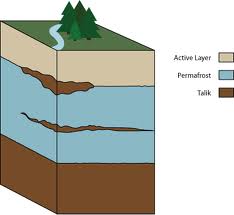I always expect an interesting reaction from Russians when telling them about my reason for being here. The reasons for this are obvious: in a region where Europeans are scarce and Climate Change “does not exist” I am an odd mix of things. Reactions have so far included – at best, astonishment, at worst, feeling sorry for me and wondered what I did wrong to be sent from London to Irkutsk. The educated young or the educated seem most open to climate change and its mitigation however these are a small minority especially since most seem to flee the slowly changing regions in favour of the capital as soon as they get a chance. One otherwise lovely old lady, so happy at having guests over, after having laid out a huge feast of home made jams, bread, cream and roasted nuts in forest honey, pies and chicken cooked in different ways and provided cogniac and tea to wash them down by, accused me of being part of a new colonisation process and accused the UK (me having come from there) of wanting to take hold of Baikal for its own benefit, with climate as a cover....
The difference between Moscow and the rest of Russia is indeed astounding; many here seem to be afraid of new ideas and judgmental of anything different (including winter clothing I must add). I thought, I knew Russia pretty well after 2 years of living in Moscow with only Russian friends, however I sometimes now feel in a different country and can undertsand why Russians call Moscow "a country within a country."
Back to Climate Change! So, what can we do in terms of it? Well policy would of course help! However the government isn’t doing much since (in addition to many other reasons) it is rich in fossil fuels and many believe a decrease in sea-ice will lead to untapped resources in the Arctic, therefore for some, warmer climate may look like a big cash-cow hanging out in the back-garden waiting to be let in. As for the population, they are not too fussed at the moment, many speak (or have heard of) Global Warming, and are therefore led to falsely picture a more pleasant country to live in, with longer summers, more arable land etc, not taking in consideration the fact that a warmer temperature would increase infectious diseases and pests, such as tick borne-encephalitis a real problem in Russia. In addition, the melting of permafrost will release greenhouse gases which have been frozen in underground deposits for centuries, contributing to the never ending Climate Change cycle. But then again, since most educated people live in low-risk areas such as European Russia and cities, these problems are still far from personal and would affect the poorer people, who, don’t really have a say in any matter. For a change in mentality something needs to be close to those who can loudly say that a change is needed.
Russians have for long been a passive people in relation to politics and change – Moscow always got what it wanted, fighting IT was surely to be a long and exhausting futile battle, so what was the point! Russia is however changing. The recent huge demonstrations against unfair elections all around the country (including in Irkutsk) prove it, before that, silent protests around Russia made the government change the course of a pipeline around Baikal. In Russia, media showed that it was Putin's decision, while in the West we heard about the protests. In any case, people here know they caused the change. As they see results they learn to speak up more, create a sense of unity and yes, change can come from below if enough people demand it. So how, and more importantly why, should people demand action in terms of Climate Change? Well “simple”, help them understand that it is in their interest!
Recently, an acquaintance of mine who is a local specialist in Climate Change sent me an interesting article, in which the head of Russia’s disaster monitoring department said that “in the next 25 – 30 years, the area of permafrost in Russia may shrink by 10-18%” and respectively by about 15-30% by the middle of the century, within a generation's lifetime. Hmm.. now this could prove useful in convincing people!
Permafrost areas are rich in gas, oil and yes, diamonds! And are not only home to oil and gas platforms and the odd remote village but to whole cities built on stilts, whose sole creation and expansion was the extraction, processing and sale of these. Just to mention an example, Yakutsk (population 215,000) the regional capital of the diamond and gold rich Sakha Republic has in recent years experienced damage to over 300 buildings, a power station and a runway at the local airport. Such issues may become endemic. The loss or instability of winter roads would have huge negative impacts on industries and locals, which often wait for the arrival of winter in order to reach remote areas by driving over marshes, wetlands and in some areas rivers and lakes. Permafrost destabilisation or mere continued thawing would destabilise transportation, energy extraction infrastructure and buildings, directly effecting people and their livelihoods.
In a country where people for a long time have been conditioned to think about themselves first and foremost (and rightly enough, due to the country having gone through huge instabilities over a long period of time, only issues that would directly have a negative impact on them will cause change and if this is not enough, then I so far don’t know what is.
Here is a link worth looking at! http://www.youtube.com/watch?v=-MRL9ugGkfE


